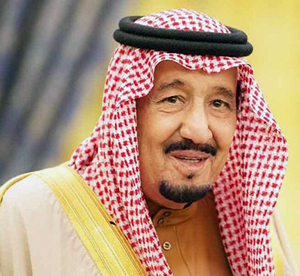Riyadh, Feb 26: The historic visit today of King Salman to Malaysia will provide a new dimension to the ties between the Kingdom and Malaysia.
The king’s Asia tour is expected to include Indonesia, Japan, China, Brunei, Jordan and the Maldives.
Malaysian Prime Minister Datuk Seri Najib Tun Razak said Malaysia was “honored” that King Salman had chosen Malaysia for his first visit to an Islamic country in the region as well as the first to Southeast Asia since ascending the throne in 2015.
He said King Salman’s visit reaffirms a partnership built on mutual trust and respect through the years. He said that the king’s visit to Kuala Lumpur could provide an example for the Muslim world.
Najib commended both countries’ “strong mutual commitment to fight extremism founded on their strong belief within the framework of the tolerant, moderate and peaceful nature of Islam.”
Najib said a number of new agreements would be signed during the visit. One involves Saudi Aramco and Malaysia’s Petronas.
King Salman’s visit will focus on “strengthening bilateral relations with Malaysia at all levels,” said Saudi Ambassador to Malaysia Fahad Abdullah Al-Rashid.
He said the close diplomatic ties, established in the early 1960s, were built on a foundation of religious unity and must be nurtured not only for the benefit of the two countries but also for the unity of the Muslim world as a whole.
Ibrahim Al-Qayid, a founding member of the National Society for Human Rights (NSHR), said the visit will herald a new era of bilateral relations. “Malaysia has become a tourism and higher education destination for many Saudis. In fact, Saudi-Malaysian relations have deep historical roots, and the religious, cultural, economic and other aspects of the bilateral relationship have expanded of late.”
Al-Qayid described the ties as long-standing and natural “besides being complementary in nature.”
On the commercial front, the two countries have reported growth. The Kingdom is the 19th biggest commercial trade partner with Malaysia and the 16th biggest importer.
“We are happy that the trade volume between the two countries has improved significantly within a short span of time,” said Tan Rastam Balala, a Malaysian banker working in Riyadh.
“The historic visit will open several channels of cooperation,” Balala added.





Comments
Add new comment